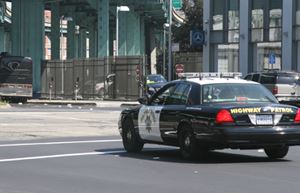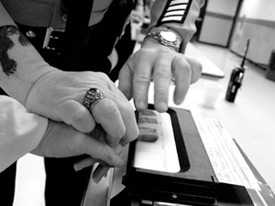DUI Overview
The California Department of Motor Vehicles (DMV) has reported that there were 195,879 driving under the influence (DUI) arrests in California in 2010. Notably, the number of DUI arrests in California is greater than the population of more than 450 of the 482 cities in the state and is greater than the population of any city in San Mateo or Marin County. This number has been cited by the California Department of Alcohol and Drug Programs in their October, 2013 Fact Sheet on Driving Under the Influence. Of the total number of DUI arrests, 24,343 involved injuries and 1,768 involved fatalities. Males comprised 77.6% of all Califorinia driving under the influence arrests while females accounted for the remaining 22.4% in 2010. Notably, the number of females arrested for DUI in California has risen every year since 1989.
Although the number of California driving under the influence (DUI) arrests is down from the 203,866 arrests reported in 2007, driving after drinking alcoholic beverages remains a dangerous activity with the potential for tragic life altering and life ending consequences. In San Francisco, as with all fifty-eight (58) California counties, it is illegal for a person to drive a motor vehicle while under the influence of alcohol, medication or drugs or with a blood alcohol level of 0.08 percent or more. If a driver consistently operates a motor vehicle after consuming alcoholic beverages, medication or drugs, it is likely that person will be arrested for driving under the influence at some point in their life.
California law provides that it is illegal to drive a motor vehicle if:
- The driver's ability to operate the motor vehicle is impaired by alcohol, medication or drugs.
- The driver's blood alcohol concentration (BAC) is at or above 0.08%.
Law Enforcement Determining DUI

When a California Highway Patrol Officer, San Francisco Police Officer, or other law enforcement officer suspects a person is driving under the influence, they can use certain investigative techniques to determine if the person may be operating a motor vehicle while under the influence before making a DUI arrest.
Observation
Law enforcement officers constantly watch vehicles in motion for certain driving behavior before they are allowed by law to stop someone for suspicion of drunk driving. For example, if a driver is operating their motor vehicle erratically, law enforcement officer may stop the driver. Erratic driving may include making wrong turns, weaving within a lane, straddling a lane, failure to signal prior to turning or changing lanes, speeding, driving too slow, failing to stop at traffic control devices, or failing to proceed through traffic control devices appropriately.
After a law enforcement officer stops a driver, they are trained to observe the driver's behavior carefully for driving under the influence signs. After making the stop, law enforcement officers will ordinarily look for symptoms of impairment such as bloodshot and watery eyes, slurred speech, staggering, and the odor of an alcoholic beverage on the driver's breath.
Field Sobriety Tests
If the officer suspects a person may be driving under the influence, they can escalate the contact to a DUI investigation and ask the person to perform so-called field sobriety tests. Field sobriety tests are voluntary, divided attention tests. However, law enforcement officers have been trained not to tell the motorist that they have a right to refuse to perform them.
If a person agrees to perform field sobriety tests, he or she will be evaluated by law enforcement on their ability to follow instructions, reaction and performance during the testing process. There are two types of field sobriety tests, termed Standardized Field Sobriety Tests and Non-Standardized Field Sobriety Tests. Mr. Tayac advises people to refuse to take field sobriety tests, even if they have not consumed any alcoholic beverages, as law enforcement may claim they have failed in order to make an arrest for drunk driving.
Blood Alcohol Level
Law enforcement officers may ask the driver to take a chemical test to
determine a driver's blood alcohol level. There are two types of chemical
test. The first type of chemical test is a
Preliminary Alcohol Screening Device (PAS). The second type of chemical test is the Evidential Breath Test
or Blood Test which is required by the
California Implied Consent law.
Evidential Blood Alcohol Concentration (BAC) tests are mandatory and are intended to measure the amount of alcohol in the driver's blood directly by way of a blood alcohol test or indirectly by way of a breath alcohol test. In California a driver is presumed to be under the influence if a their Blood Alcohol Concentration (BAC) is 0.08% or higher.
DUI Punishments
DUI is treated as a serious crime in San Francisco and all Bay Area counties. Each county has a district attorney's office which prosecutes (charges) criminal cases and Superior Court which handles the cases. Each county in the Bay Area has particular way of punishing people who have been convicted of driving under the influence.
If a person is arrested for DUI, a criminal arrest record will be created. If convicted, the record of conviction may be viewed negatively by present and future employers and can also impact a person's educational and professional opportunities. A person who is convicted of DUI is also subject to harsh legal consequences, such as jail time, fines, license suspension, DUI School, and probation. Sentences which can be enhanced if the driver refused to take the BAC test, had a BAC result of 0.15% or higher, had a minor under age 14 in the vehicle, or had prior DUI convictions.
San Francisco DUI Attorney
If you have been arrested for DUI in San Francisco or any of the surrounding counties of Alameda, Contra Costa, Marin, Napa, San Mateo, Santa Clara, Solano, or Sonoma, hiring a qualified attorney is a good decision. A qualified DUI lawyer will protect your rights, inform you of your legal options at all stages of the case, investigate the circumstances of your arrest, and may question law enforcement and other witnesses. Most importantly, an experienced DUI attorney will obtain the best possible result if you settle your case or provide the professional skill and resources required to effectively fight your charges.
Robert Tayac and the experts and investigators working with his office have been helping people charged with DUI in San Francisco for more than twenty (20) years. Mr. Tayac has the specialized education, training, and experience to effectively defend you in any San Francisco Bay Area drunk driving case. As well, his office will schedule your DMV hearing with the Driver Safety Office and represent you at the DMV Hearing. If your driver's license is suspended, Mr. Tayac knows how to help you get your license reinstated on the earliest possible date.
Contact the Office
Mr. Tayac and the DUI investigators and experts working with him stand ready to help you or your family member. A member of the office is available to speak with you regarding the case any day of the week between the hours of 8:00 a.m. and 8:00 p.m. Pacific Standard Time at 415-552-6000.
If you hire the Law Office of Robert Tayac, you will know that you have retained the services of the most knowledgeable and experienced DUI defense team. No attorney will obtain a better result for you in a DUI criminal case and DMV license suspension action.
